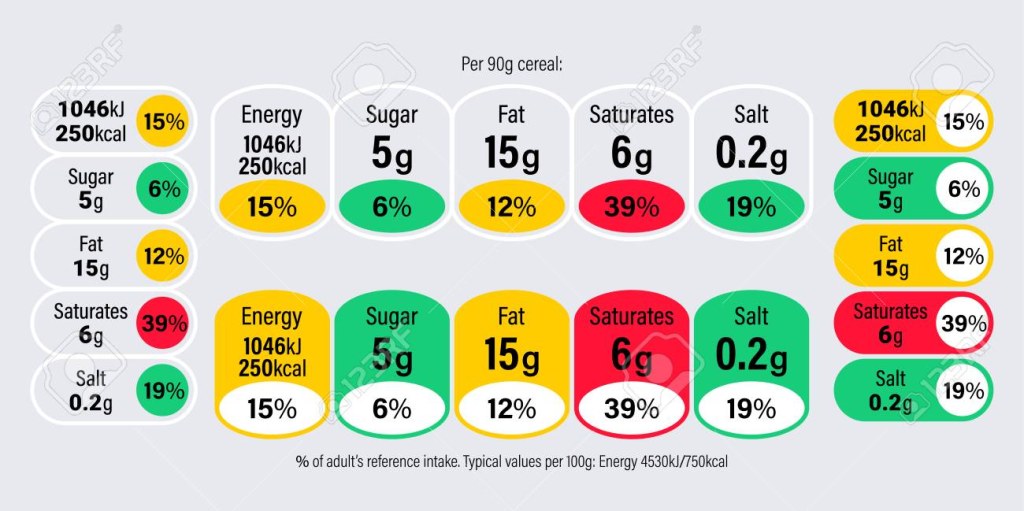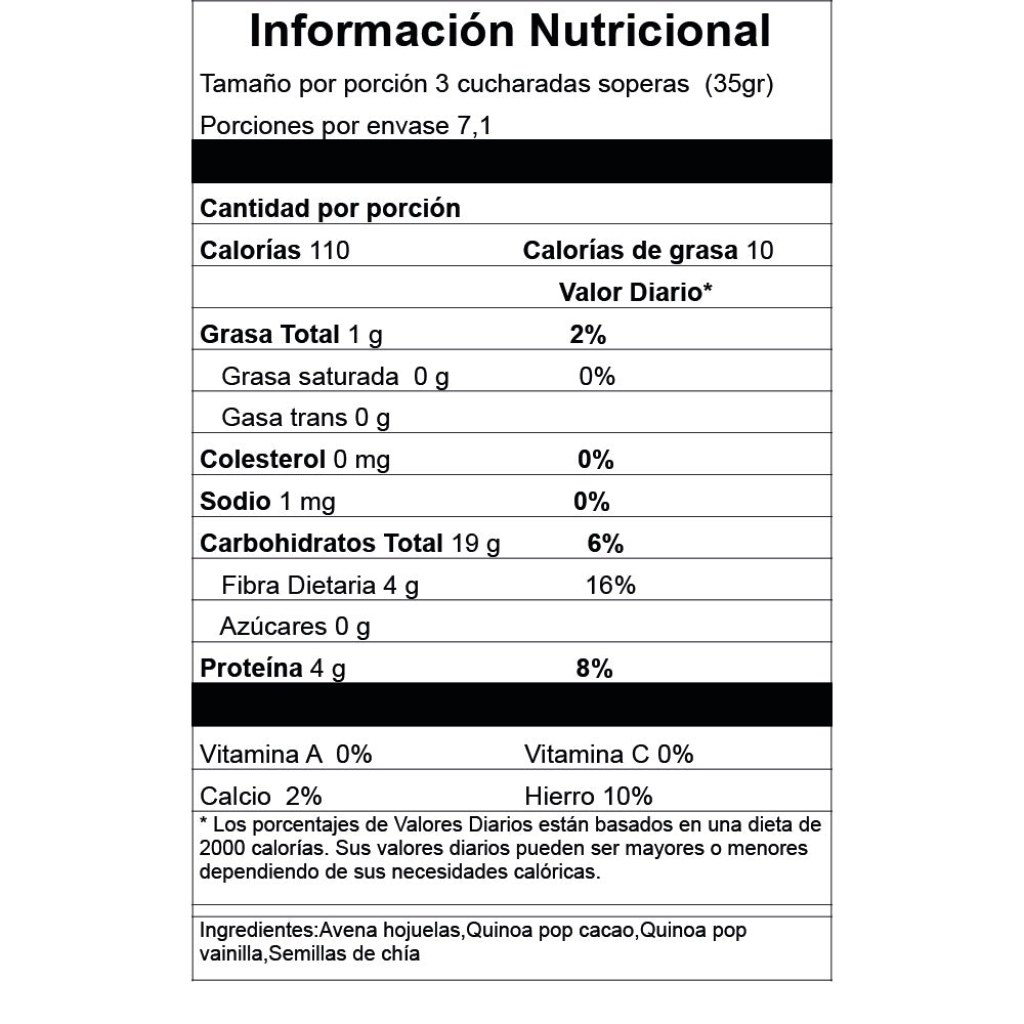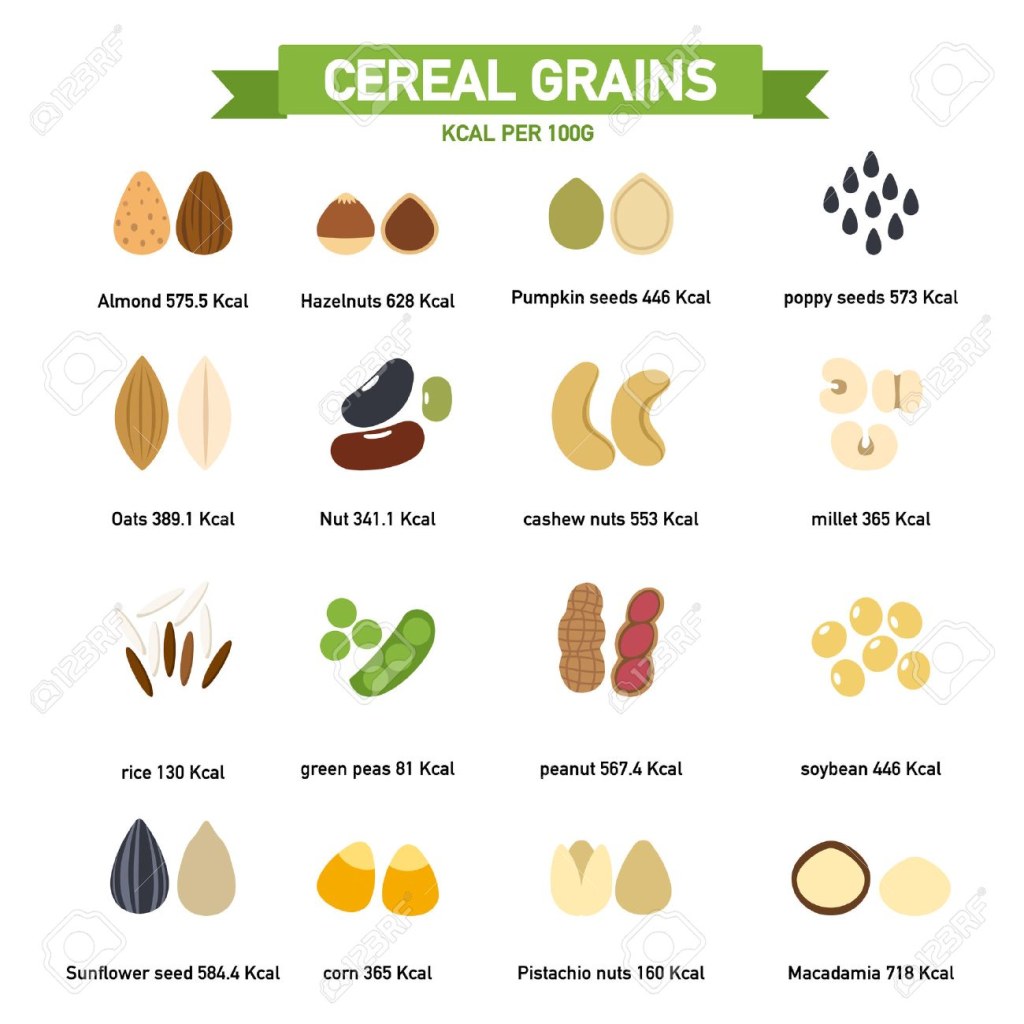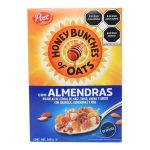Cereal Calories: Your Key To Healthy Eating And Weight Management!
Calorías de Cereal: Understanding the Nutritional Value
The Importance of Calorías de Cereal
Greetings, Cereal Enthusiast! As a lover of cereal, you understand the importance of starting your day with a nutritious and delicious breakfast. One key factor to consider when choosing a cereal is its caloric content. In this article, we will delve into the world of calorías de cereal, exploring their significance and how they can impact your overall health and well-being.
3 Picture Gallery: Cereal Calories: Your Key To Healthy Eating And Weight Management!



The Basics of Calorías de Cereal
Before we dive into the specifics, let’s first understand what calorías de cereal actually means. Calorías de cereal refers to the amount of energy provided by a serving of cereal. It is a measure of the potential energy your body can obtain from consuming that particular food. By being aware of the caloric content, you can make informed decisions about your cereal choices and ensure they align with your dietary goals.
What Determines the Caloric Content of Cereal?

Image Source: 123rf.com
🔍 The caloric content of cereal is primarily determined by its macronutrient composition. Carbohydrates, proteins, and fats all contribute to the total caloric value of a cereal. Carbohydrates and proteins provide 4 calories per gram, while fats provide 9 calories per gram. The combination and quantity of these macronutrients in a cereal will determine its overall caloric content.
Who Should Pay Attention to Calorías de Cereal?
👀 Calorías de cereal is a crucial aspect to consider for individuals who are watching their weight or have specific dietary requirements. Those on weight loss journeys or following specific diet plans, such as calorie counting or macronutrient tracking, need to be mindful of the caloric content of their cereals. Additionally, individuals with certain health conditions, such as diabetes or heart disease, may also benefit from being aware of the caloric content of their cereal choices.
When Should You Consider Calorías de Cereal?

Image Source: cereart.com
⌚ Calorías de cereal should be considered when planning your breakfast or snack options. Starting your day with a cereal that provides an appropriate amount of calories can help fuel your body and keep you energized throughout the morning. It is important to strike a balance between the caloric content and the nutritional value of the cereal, ensuring it fits within your overall dietary needs and goals.
Where Can You Find Information on Calorías de Cereal?
🌍 Most cereal brands provide information about the caloric content on their packaging. This information can usually be found on the nutrition label, along with other important nutritional details. Additionally, you can also find information on caloric content through online resources, cereal comparison websites, or by consulting with a registered dietitian or nutritionist.
Why Should You Be Aware of Calorías de Cereal?

Image Source: 123rf.com
❓ Being aware of the caloric content of your cereal choices allows you to make informed decisions about your nutrition and overall health. By understanding how many calories you are consuming, you can better manage your weight, ensure you are meeting your dietary goals, and make adjustments if necessary. Calorías de cereal serves as a valuable tool in maintaining a balanced and healthy diet.
How Can You Make the Most of Calorías de Cereal?
🔑 To make the most of calorías de cereal, it is essential to consider the overall nutritional value of the cereal as well. Opt for cereals that are high in fiber, protein, and essential vitamins and minerals. These cereals provide a more well-rounded and satisfying breakfast, keeping you fuller for longer and providing sustained energy throughout the day.
The Pros and Cons of Calorías de Cereal
Pros of Calorías de Cereal
1. 🌾 Variety: Cereals come in a wide range of flavors and textures, catering to different taste preferences.
2. ⏰ Convenience: Cereal is a quick and easy breakfast option, perfect for busy mornings.
3. 🥣 Nutritional Value: Many cereals are fortified with essential vitamins and minerals, contributing to a balanced diet.
4. 🌾 Versatility: Cereal can be enjoyed in various ways, such as with milk, yogurt, or as a topping for smoothie bowls.
5. 💡 Transparency: Most cereal brands provide detailed information about the nutritional content, including calorías de cereal, on their packaging.
Cons of Calorías de Cereal
1. 🤔 Added Sugar: Some cereals can be high in added sugars, which may contribute to excessive caloric intake and potential health concerns.
2. 🌾 Processing: Certain cereals undergo extensive processing, which can strip away some of the natural nutrients.
3. 🍞 Lack of Protein: Some cereals may be low in protein, which is an essential macronutrient for satiety and muscle building.
4. 🥛 High in Carbohydrates: Cereals are often high in carbohydrates, which may not be suitable for individuals on low-carb or ketogenic diets.
5. 🌍 Environmental Impact: The production and packaging of cereals can have a negative impact on the environment, contributing to waste and carbon emissions.
Frequently Asked Questions
1. Are all cereals high in calorías?
No, not all cereals are high in calorías. There are various options available, including low-calorie and high-fiber cereals that provide a more balanced nutritional profile.
2. Can cereals be a part of a weight loss diet?
Yes, cereals can be part of a weight loss diet. Opt for cereals that are low in added sugars and high in fiber to promote satiety and support weight loss goals.
3. Are there cereals suitable for individuals with dietary restrictions?
Absolutely! There are cereals available that cater to individuals with dietary restrictions, such as gluten-free, dairy-free, and vegan options.
4. Can I consume cereal as a snack?
Yes, cereal can be enjoyed as a snack. Choose cereal options that are lower in calorías and pair them with a protein source, such as Greek yogurt or nuts, for a more balanced snack.
5. Can I customize my cereal to make it healthier?
Definitely! You can customize your cereal by adding fresh fruits, nuts, or seeds to increase its nutritional value and add extra flavor.
Conclusion: Choose Your Cereal Wisely
In conclusion, when it comes to calorías de cereal, knowledge is power. By understanding the caloric content of your cereal choices, you can make informed decisions that align with your dietary goals and overall health. Consider the nutritional value, fiber content, and macronutrient composition of the cereals you choose, aiming for a balanced and satisfying breakfast. So, the next time you’re browsing the cereal aisle, remember the importance of calorías de cereal and choose wisely!
Final Remarks
📢 The information provided in this article is for informational purposes only and should not replace professional medical advice. If you have specific dietary concerns or health conditions, it is recommended to consult with a registered dietitian or healthcare professional. Remember to read the nutrition labels and ingredient lists of cereals carefully to make the best choices for your individual needs and preferences. Happy cereal hunting!
This post topic: Cereal


